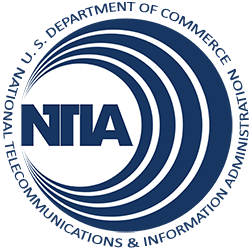Building a Competitive Nation with Empowered and Engaged Latino Communities
On Wednesday I spoke at a League of United Latin American Citizens conference about how BTOP is expanding broadband access and adoption in the Latino community. Though it’s been roughly 15 years since the “digital divide” gained national attention, the issue remains a serious one for Latinos. In fact, NTIA’s Digital Nation Report shows that even after adjusting for income and other socioeconomic characteristics, Latino households lag White households in broadband adoption by 14 percentage points.
This issue is growing in importance as computer skills and high-speed Internet access are increasingly vital to full economic and civic participation in American society. In terms of employment, for example, a recent study shows that between 1998 and 2008, the number of domestic IT jobs grew by 26 percent, four times faster than U.S. employment as a whole. By 2018, IT employment is expected to grow by another 22 percent.
LULAC is on the front lines of addressing the Latino broadband gap through its network of technology centers and its partnership with BTOP grantee One Economy, which is conducting a comprehensive digital literacy program in 50 cities and towns. LULAC is helping One Economy bring its Digital Connectors program to Latino communities in need, providing technology training for students who will in turn serve as community ambassadors of broadband opportunities.
Other BTOP grantees with projects targeted to the Latino community include:
The Mission Economic Development Agency, which is collaborating with a national network of Latino-serving economic development organizations to create and expand public computer centers in 13 communities. They expect to train an estimated 3,000 users per year through English and Spanish-language curriculum, including technology training to help Latino entrepreneurs establish and grow their businesses. MEDA recently opened its first BTOP-funded public computer centers in San Francisco and San Antonio.
The Mexican Institute of Greater Houston is using its network of more than 100 community centers to conduct computer skills training for Hispanic and English-as-a-Second-Language students and their families. They have already sponsored 28 classes for almost 500 students and plan to train as many as 5,600 residents in total.
The Foundation for California Community Colleges has launched digital literacy classes for students and their families and will focus particularly on training for low-income Hispanic residents in California’s Central Valley region. As part of this initiative, nearly 5,800 community college students will receive laptops for schoolwork and to communicate with their families.
The Computers for Youth Foundation and the Los Angeles Unified School District are expanding a successful pilot project that uses computer and Internet tools to increase family involvement in sixth-grade students’ education. Students and their families receive digital literacy training in English and Spanish, after which they get a refurbished computer with educational software. The project is already serving the families of more than 1,700 students in six high-poverty schools and is expected to benefit an estimated 34,000 individuals in total.
Computers for Youth is also partnering on a similar project with BTOP grantee the New York Department of Information Technology and Telecommunications. I recently visited the David A. Brody School in Brooklyn, where students and their parents are receiving computers, training, and discounted broadband service as part of an online learning initiative at high-need public middle schools across the city. The project plans to benefit roughly 18,000 students and their families, approximately 40 percent of whom are Latino. This is a “win-win-win” -- by engaging parents in their children’s education and creating a better home learning environment, the program can boost academic success and help both students and their parents gain the skills needed to fully participate in the digital economy.
These and other BTOP projects help not only the Latino community but also the United States as a whole. The more we can grow technology skills among our people, the more competitive our Nation will be in the 21st century global economy.
